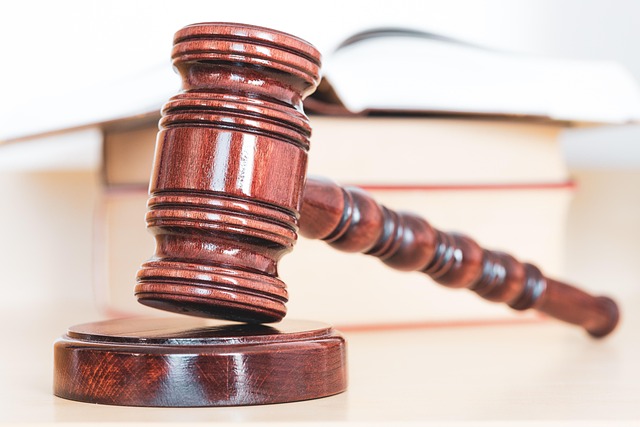Plea bargaining is a strategic process where defendants and prosecutors negotiate charges and sentences, offering a path to avoid trial. Criminal defense attorneys play a vital role in these negotiations, balancing legal knowledge with client objectives to secure favorable outcomes, from reduced sentences to dropped charges. Effective plea negotiations impact trial results, saving time, costs, and mitigating consequences for clients, whether corporate or individual. Understanding this process is key to recognizing its profound effect on "How Plea Negotiations Affect Trial Outcomes."
“Criminal Defense Attorneys: Mastering the Art of Plea Bargaining and Its Impact on Trial Outcomes
In the intricate dance between prosecutors and defense lawyers, plea bargaining plays a pivotal role. This article delves into the strategies and intricacies behind effective plea negotiations, offering insights into their profound impact on an accused’s legal rights. From understanding the plea process to exploring case studies of successful deals, we’ll examine how these negotiations can shape trial outcomes. Additionally, we’ll discuss preparation for trials, highlighting alternatives and consequences.”
- Understanding Plea Bargaining Process
- Strategies for Effective Negotiations
- Impact on Accused's Legal Rights
- Case Studies: Successful Plea Deals
- Preparing for Trial: Alternatives & Consequences
Understanding Plea Bargaining Process

Plea bargaining is a critical aspect of the criminal justice system, offering an alternative to a full trial. This process involves negotiations between the defendant and the prosecution to reach an agreement on a reduced charge or sentence in exchange for a guilty plea. Understanding how these negotiations unfold is essential for both defendants and their general criminal defense attorneys. The attorney’s role is pivotal; they must navigate complex discussions, ensuring the best possible outcome for their client while considering the broader implications for winning challenging defense verdicts.
The impact of plea negotiations on trial outcomes cannot be understated. Effective plea bargaining can lead to significant benefits for the defendant, such as avoiding a potentially harsher sentence or reducing the overall legal costs. However, it also demands strategic thinking and a deep understanding of the law from defense attorneys. By skillfully managing these negotiations, legal professionals can shape the case’s trajectory, often resulting in favorable outcomes not just for their clients but also for the philanthropic and political communities affected by criminal cases.
Strategies for Effective Negotiations

Criminal Defense Attorneys employ various strategies for effective plea negotiations, which significantly influence trial outcomes. One key approach is understanding the client’s objectives and leveraging this knowledge during discussions with prosecutors. By assessing the strengths and weaknesses of the case, attorneys can navigate complex conversations, ensuring their clients receive just compensation or a favorable outcome.
Effective negotiation tactics also involve a thorough grasp of legal procedures, especially in white-collar defense cases, where all stages of the investigative and enforcement process must be considered. Skilled attorneys use this knowledge to challenge evidence, question procedural fairness, and ultimately secure winning challenging defense verdicts. These strategies not only protect the client’s rights but also shape the narrative, potentially avoiding trials altogether or significantly mitigating potential sentences.
Impact on Accused's Legal Rights

The role of a Criminal Defense Attorney extends far beyond simply representing an accused person; it involves protecting their legal rights and ensuring they receive a fair trial. One critical aspect of this defense is plea negotiations, which can significantly impact the outcome of a case. How these negotiations unfold can mean the difference between a guilty plea and a trial, both with substantial consequences.
Effective plea negotiations require a deep understanding of the law, the evidence against the accused, and the potential sentences they face. Defense attorneys strategize to achieve the best possible outcome for their clients, whether that’s reduced charges or a lighter sentence. This process is vital for corporate and individual clients alike, as it can determine the respective business or personal consequences. By skillfully navigating these negotiations, attorneys can often achieve extraordinary results, ensuring their clients’ rights are upheld throughout the legal journey.
Case Studies: Successful Plea Deals

In many criminal defense scenarios, plea negotiations play a pivotal role in shaping trial outcomes. These discussions allow for a more controlled and strategic approach to resolving cases, particularly in high-stakes situations involving corporate or individual clients. By engaging in plea bargaining, attorneys can navigate complex legal landscapes and secure favorable results for their clients.
Successful plea deals often stem from the attorney’s ability to understand the prosecution’s stance, weigh potential outcomes, and offer compelling arguments. This strategic negotiation process involves assessing the strength of evidence, exploring alternative charges, and presenting mitigating factors. As a result, attorneys can advocate for reduced sentences, dropped charges, or even dismissals, ultimately achieving the best possible outcome for their high-profile clients.
Preparing for Trial: Alternatives & Consequences

Preparing for trial is a critical phase in any criminal case, and it involves strategic considerations that can significantly impact the outcome. While some defendants opt to go to trial and present their innocence before a jury, others may choose alternative paths, such as plea negotiations. Understanding how these negotiations affect trial outcomes is essential for both general criminal defense attorneys and those representing corporate and individual clients alike.
Plea negotiations offer an opportunity to resolve the case without going to court, potentially saving time and resources for all parties involved. During these discussions, the defendant’s attorney can advocate for a reduced charge or sentence, considering the evidence and the client’s best interests. However, it’s crucial to remember that pleading guilty is a significant decision with lasting consequences. It may affect future opportunities and could impact a person’s ability to participate in certain activities, especially in all stages of the investigative and enforcement process. Therefore, plea negotiations should be carefully navigated to ensure the best possible outcome for each client.
Understanding plea bargaining and its negotiation strategies is paramount for both criminal defense attorneys and those facing charges. This article has explored the intricate process, from recognizing successful negotiation tactics to examining the impact on legal rights. By delving into case studies and preparing for trial alternatives, individuals can make informed decisions that potentially alter their outcomes. Ultimately, mastering plea negotiations equips defenders with a powerful tool to advocate for their clients’ best interests in navigating the criminal justice system. Moreover, recognizing how these negotiations affect trial outcomes is essential for achieving favorable results in legal matters.






